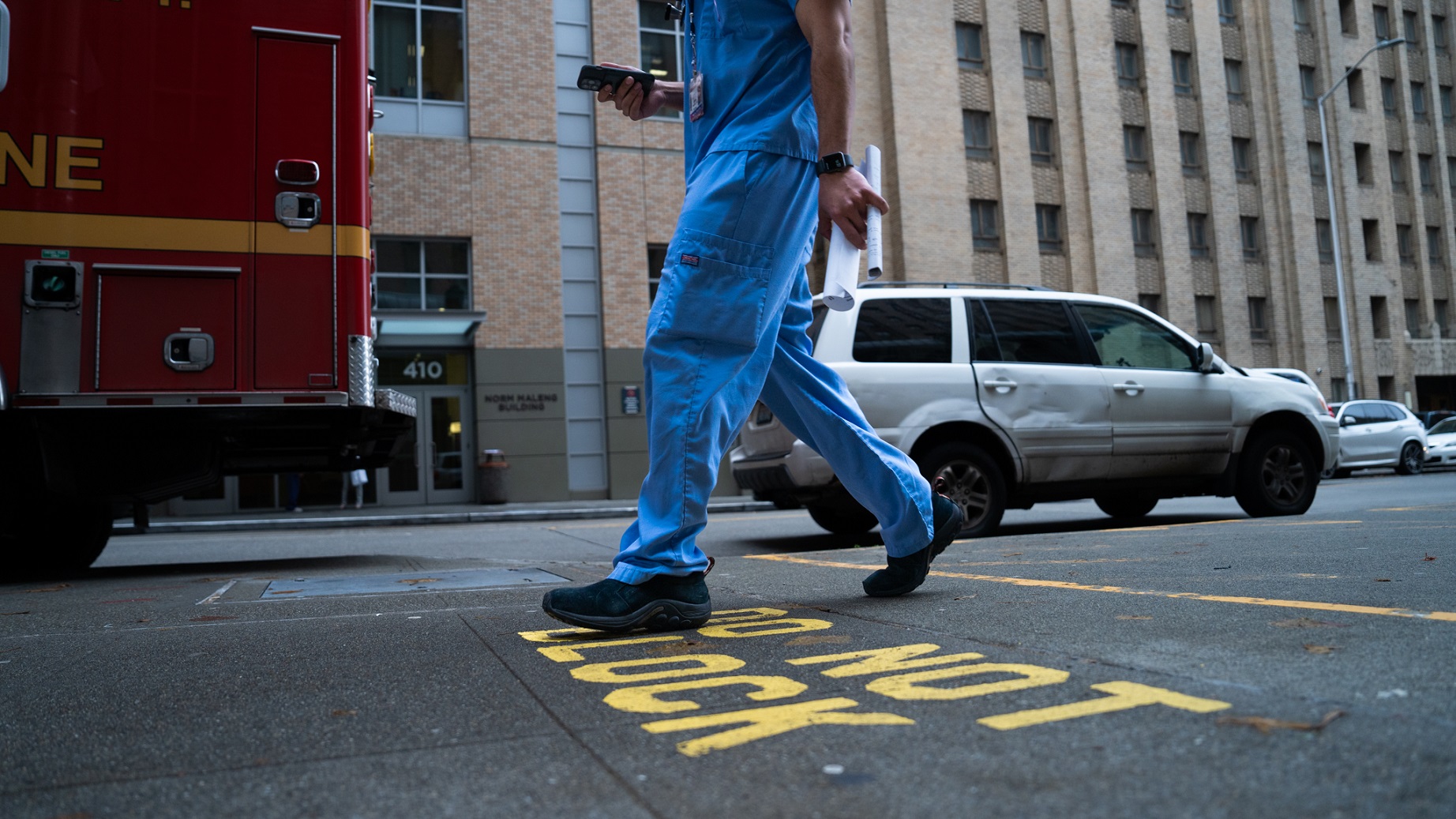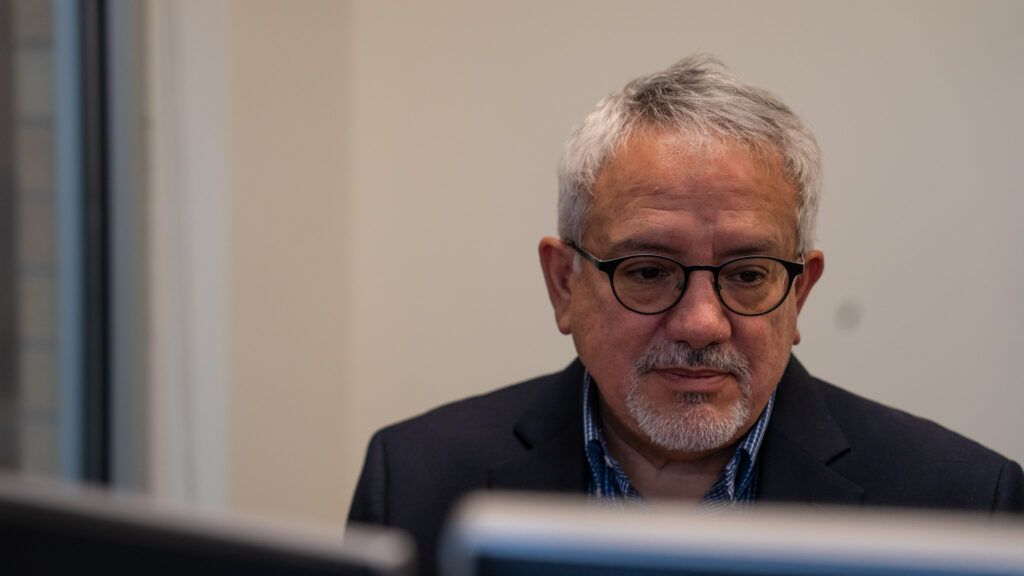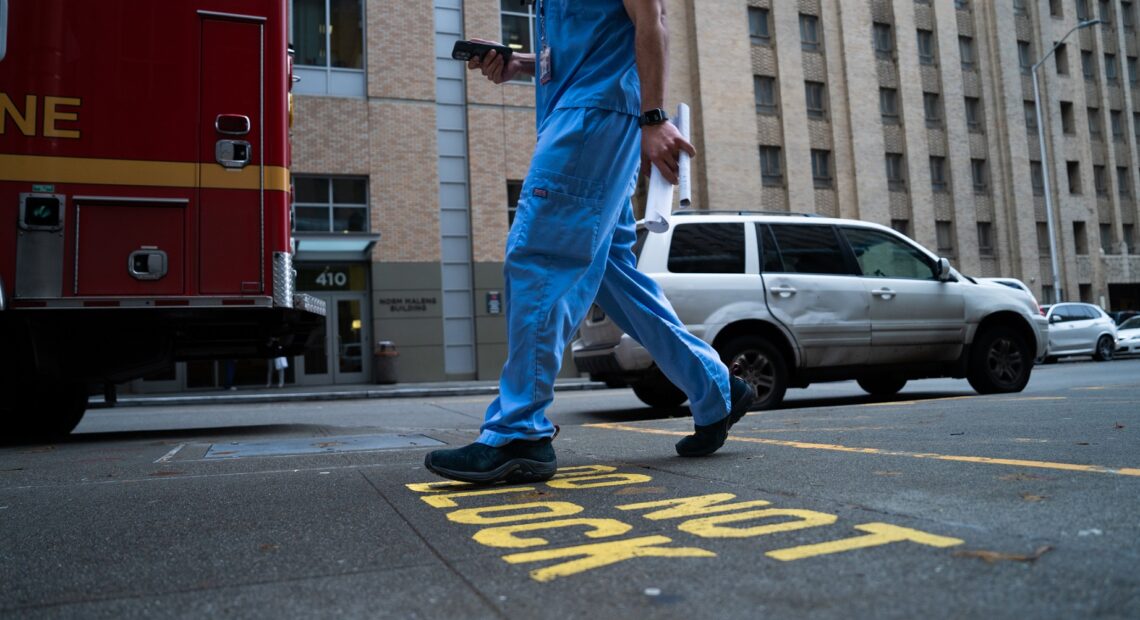
Long-COVID patients need more resources in central Washington
Listen
(Runtime 5:06)
Read
In Washington, there is only one clinic to treat Long-COVID. It is in Seattle on the west side of the state. Long-COVID haulers in the Yakima Valley face a lack of local resources, diagnosis and information. Some say they feel disconnected from their doctors.
This is part three of a collaborative piece with palabra, the National Association of Hispanic Journalism media outlet, about Long-COVID.
PART ONE: COVID is far from over for some Latinos
PART TWO: Long-term impacts of Long-COVID among Latinos being researched in WA
Messages talking about the importance of vaccination air each week on Radio KDNA, a popular Spanish-language station in the Yakima Valley in Central Washington.
Another radio program, sponsored by the Yakima County Health District, promotes healthy habits.
Right now, both are raising awareness about COVID. The programs and its hosts are inviting listeners to get the COVID vaccine and more recently – tell people about Long-COVID.
Doctor Tao Kwan-Gett is the Washington State Department of Health Chief Science Officer. He said he is aware that Long-COVID is real and serious but also said that the priority is prevention.
“We are focused on COVID-19 vaccines because we think that’s the best way to prevent Long-COVID. Long-COVID is a very challenging condition and one that we don’t understand,” said Kwan Gett.
Doctor Leo Morales is the co-director of the University of Washington Latino Center for Health. He is one of the researchers trying to understand how Long-COVID is impacting communities.
Morales recently presented the results of research about Long-COVID among Latinos.
He agreed that the best way to prevent Long-COVID, and even other complications, is not getting COVID in the first place.
“If you’re vaccinated and get COVID, you’re less likely to get Long-COVID. So, vaccination will help reduce your risk of getting Long-COVID,” said Morales.
But what about patients who have Long-COVID, already – and in the Yakima Valley, many said they have trouble getting treatment.
Kwan-Gett said that while the health department focuses on prevention, the treatment is in the hands of health providers.
Victoria is a Long-COVID hauler in Sunnyside. She preferred not to use her real name.
She said she dealt with a disconnection between doctors and patients.
“They listened to me but at the same time they not. They didn’t want to talk… or I don’t know if they didn’t want to but they didn’t have anything to say about it,” said Victoria in Spanish.
She said that was her feeling every time she mentioned that her health issues started after she had COVID.
Victoria said when her doctor finally listened to her and referred her to the Long-COVID clinic, her insurance company told her to find one in Yakima County.
“Well, where, there isn’t, it doesn’t exist. How does a health insurance company not know that there’s only one and it’s in Seattle,” Victoria said.
Doctor Janna Friedly is the executive director of that University of Washington Post-COVID Rehabilitation and Recovery Clinic.
In an interview with Lygia Navarro, a journalist with palabra, Friedly said the clinic started in 2020 thinking about patients who will need to follow up at hospitalization rehab care.
“We open the clinic to anyone who referred themselves or were referred into the clinic, and we were seeing patients from the whole WWAMI region,” said Friedly.
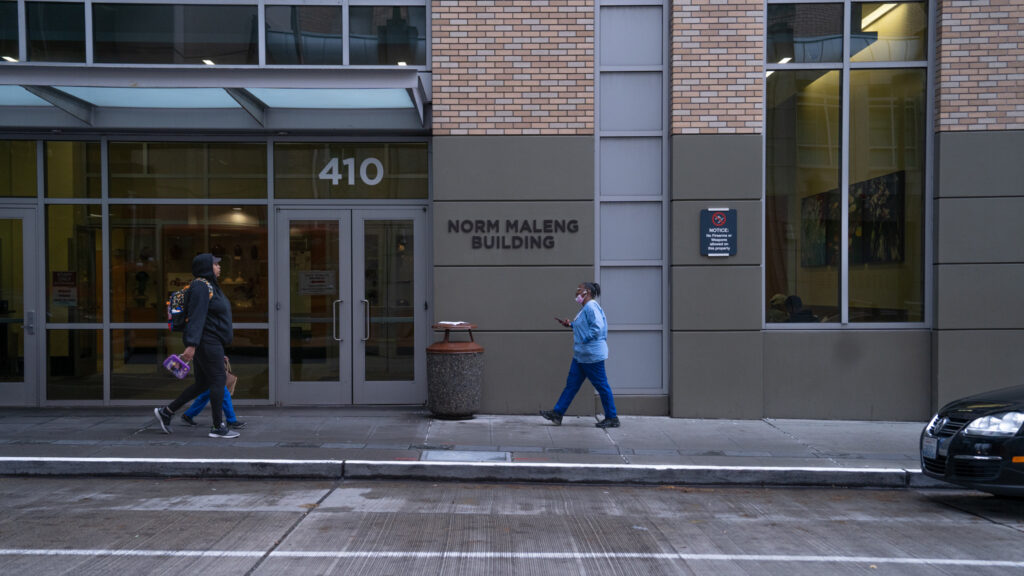
University of Washington’s long COVID clinic, located at the Norm Maleng Building at Harborview Medical Center. (Credit: by Tela Moss / NWPB)
With many people requiring services, Friedly explained things had to change.
“As of January 2024, we had to close referrals to only King County and internal UW referrals because our wait times were getting beyond one year, which was not manageable,” Friedly said.
It would limits treatment options for patients in the central and eastern part of Washington.
Lilian Bravo works at the Yakima County Public Health District. She said the district is not actively responding to Long-COVID.
“To be completely honest, it is limited and that’s one of the things that we are looking closely at in terms of how science develops. So, we can support that,” said Bravo.
Bravo explained the district’s main focus, at this time – as is being done by the state health authority – is COVID prevention and vaccination.
Bravo said, in Yakima, not everyone talks openly about Long-COVID. However, the District is hearing from people on its Radio KDNA health show.
“We invite people to call in and, without a doubt, every single time we host one of those shows, we’ll have someone calling and talk about how they’re still impacted by the infection,” said Bravo.
She said it’s difficult to know if these cases meet the definition of Long-COVID.
She said tracking Long-COVID cases in the county is hard to do, because different circumstances prevent them from getting the information needed to measure Long-COVID and its impacts.
“If people aren’t going back for care, or if their care is so severe that, now, they’ve moved on to a specialty provider, it’s unlikely that their information, in terms of the specific symptoms, will get back to the primary care provider – if they had one in the first place,” Bravo said.
Victoria said something that can limit people from getting care is the turnover of doctors in the area.
“A lot of people don’t have confidence in the doctors, because we have a lot of doctors who come here to do their time serving a low-income population. They come and change and, for that part, there’s no consistency,” said Victoria.
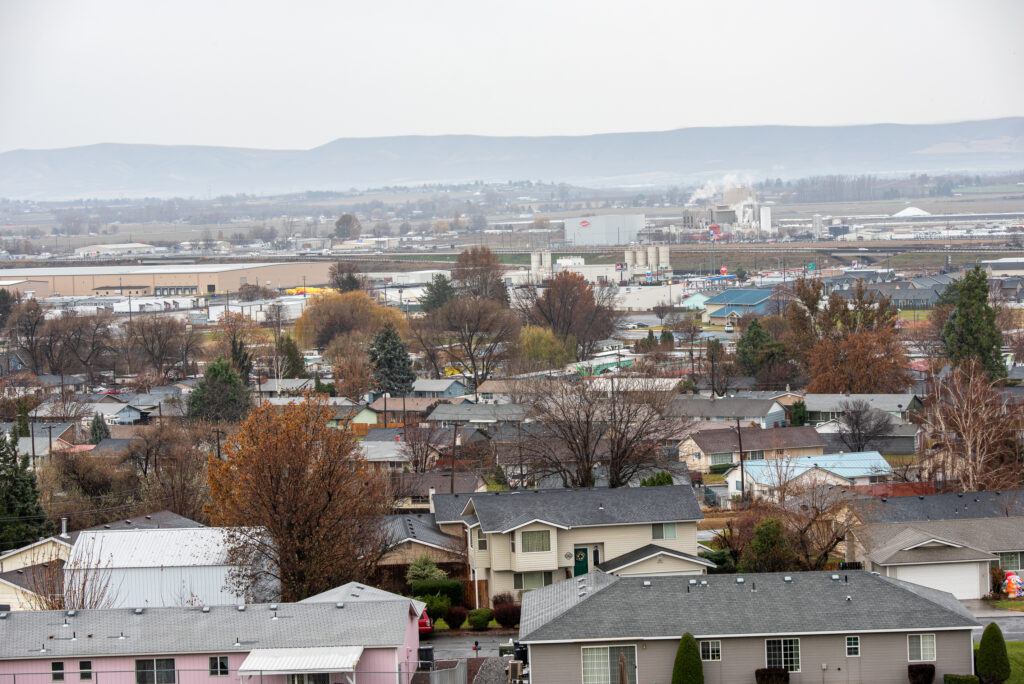
The town of Sunnyside, Washington, is shown recently looking south towards the Horse Heaven Hills in the Yakima Valley. (Photo by Annie Warren / NWPB)
Lack of insurance is another critical factor, said Bravo.
“There’s about 15% of individuals who don’t have insurance here, just extremely high. Here health access is a challenge,” she said. “How are you going to capture the true number of individuals who have these symptoms when you have limited access to health care as well.”
The clinics serving Hispanics in the Yakima Valley do not have answers about Long-COVID, either.
Doctors at Yakima Neighborhood Health Services declined to comment for this report.
The communications manager said in an email “they don’t see a lot of Long COVID” and the medical staff “don’t feel equipped to comment upon.”
Yakima Valley Farm Workers Clinic, which provided a sample for the recent Long-COVID survey, also did not respond to requests for comments.
Kevin Maloney, communications media relations manager with MultiCare Health System, the group that recently bought Yakima Valley Memorial Hospital, said in a written statement that “Long-COVID is a complex and evolving diagnosis for a wide range of symptoms,” noting it needs to be treated on an individual basis – patient by patient.
Maloney explained that “anecdotally,” they “see patients in Central Washington in a variety of clinics who have lingering issues that may be related to the virus.”
“It’s often difficult to diagnosis long haul COVID but that is not limited to the Latinx population of the Yakima community,” Maloney mentioned in the statement.
He also said it is hard to track among the Latino/a/x/e populations “because many are suffering symptoms in silence.”
The silence, said Victoria and Bravo, might be based on cultural aspects in a community devoted to hard work and a determination to not be ill.
This report is a collaboration between Northwest Public Broadcasting and palabra, the National Association of Hispanic Journalists multimedia platform.
NWPB’s Johanna Bejarano worked with Lygia Navarro, a journalist with palabra. This is the third in the series of collaborative pieces about Long-COVID in Central Washington.

